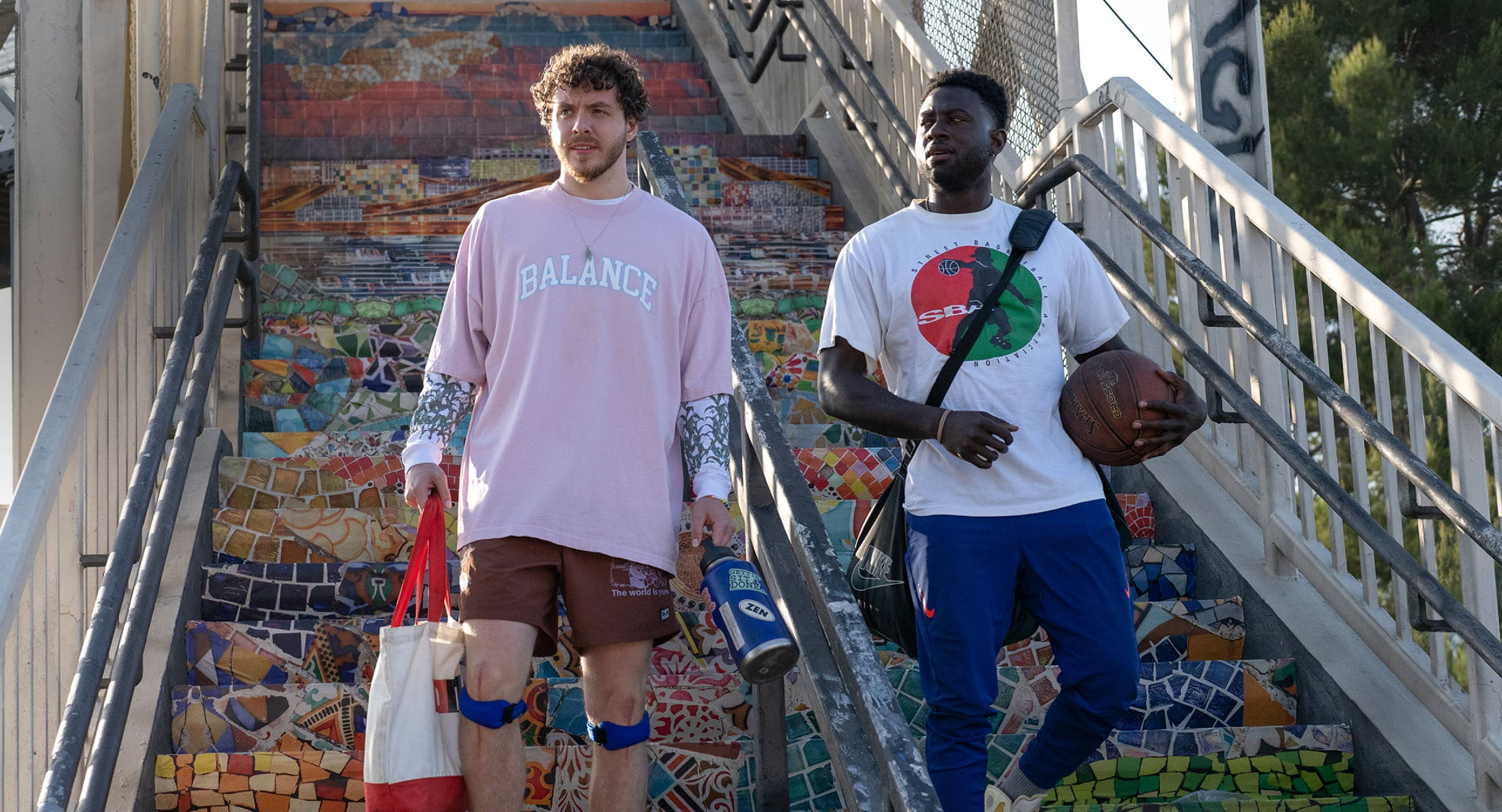White Men Can’t Jump – Film Review
Published May 19, 2023

Seemingly opposite street hoopers, Jeremy, an injury prone former star, and Kamal, a has-been prodigy, team up to take one final shot at living out their dreams.
The brand Calmatic-directed remake/reimagining of White Men Can’t Jump is a disappointing and lacklustre attempt at reviving the beloved classic from the 90s. This film falls miserably short of capturing the energy, charm, and spirit that made the original film so memorable. With embarrassingly awful performances, uninspired cinematography, and a soulless execution, this film is a complete chore to sit through.
One of the most glaring issues with this film is the performance of Jack Harlow, who plays one of the main characters named Jeremy. Harlow’s portrayal is painfully wooden and lacking any charisma or depth. It’s evident that his acting skills are severely limited, and he fails to bring any nuance or believability to his character. In stark contrast, Woody Harrelson’s performance in the original film was a joy to watch, filled with wit, charm, and a genuine sense of authenticity. Harlow’s performance only serves to highlight the stark contrast and leaves the audience longing for the original chemistry that Harrelson and Wesley Snipes brought to the screen.
Furthermore, the cinematography in White Men Can’t Jump feels flat and dull. The original film had a vibrant and dynamic visual style that perfectly complemented the fast-paced nature of street basketball. However, in this remake, the cinematography fails to capture the same energy and excitement. The shots lack creativity, and the camera work feels unimaginative and uninspired. It’s as if the filmmakers forgot to infuse the visual language with any sense of excitement or purpose. As a result, the film visually pales in comparison to its predecessor, failing to engage or captivate the audience.
Beyond its technical shortcomings, White Men Can’t Jump suffers from a severe lack of life and soul. The original film had a vibrant and authentic energy, with memorable characters and a story that resonated with audiences. In contrast, this film feels watered-down and devoid of any real substance. The plot lacks depth and fails to offer any meaningful commentary or fresh insights. It feels like a hollow rehashing of familiar tropes without adding anything new or compelling to the narrative.
The script is littered with uninspired dialogue and clichéd jokes that fall flat. The witty banter and sharp humor that made the original film so enjoyable are sorely missing. The attempts at humor in this remake feel forced and awkward, contributing to the overall sense of disappointment. Instead of building on the foundation established by the first film, the script settles for cheap laughs and tired stereotypes.
One of the most frustrating aspects of White Men Can’t Jump is its failure to capture the essence of street basketball culture. The original film embraced the rich tapestry of urban basketball, portraying it as a vibrant and authentic world with its own rules and dynamics. However, this sequel barely scratches the surface, reducing the streetball scenes to mere set pieces devoid of any real excitement or tension. The lackluster direction and uninspired choreography further exacerbate this issue, resulting in forgettable and unengaging basketball sequences.
In conclusion, White Men Can’t Jump is a severely disappointing and lifeless film. Jack Harlow’s embarrassingly awful and uncharismatic performance, coupled with flat and dull cinematography, fails to recapture the magic of the original. The film feels like a severely watered-down version of its predecessor, lacking the wit, energy, and soul that made the first film a classic. It’s a complete chore to sit through, leaving fans of the original and newcomers alike longing for the vibrant and authentic experience that White Men Can’t Jump once offered.
